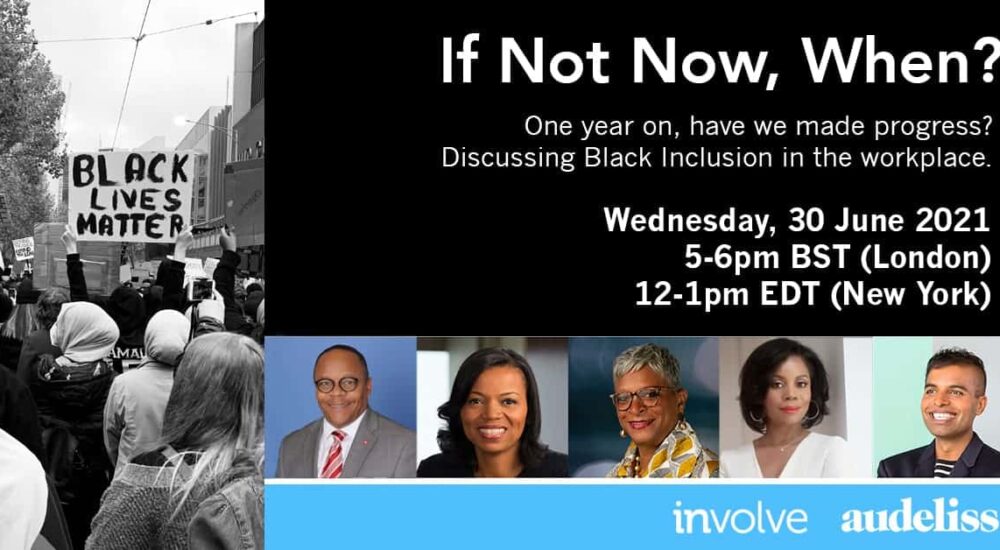Part 3 of our If Not Now, When? panel event discussed the impact the Black Lives Matter upsurge has had in driving Black inclusion in the workplace.
Over a year ago, we saw the Black Lives Matter movement truly go global. While the movement itself has been gaining momentum since 2013, the murder of George Floyd sent shockwaves across the world. It sounded a call to action that could no longer be ignored.
Through the course of a year, we’ve seen a shift towards conversation and education, accountability, and the much-needed realisation that things must change. So what has changed? How have businesses responded to this call to action? And what more do we need to do?
On Wednesday 30 June, our founder and CEO, Suki Sandhu OBE, sat down with Carlos Cubia (Senior Vice President, Global Chief Diversity, Equity, and Inclusion Officer at Walgreen Boots Alliance), Erika Irish Brown (Chief Diversity, Equity and Inclusion Officer and Global Head of Talent at Citi), Sandra Sims-Williams (Chief Diversity Officer at Nielsen), and Wema Hoover (former Global Head, Diversity, Equity & Inclusion at Google) for part 3 of our If Not Now, When? panel series. The event discussed whether we have seen adequate action over the last year and what work businesses still have to do.
It’s a MOVEMENT not a MOMENT
Last year there was a fear that the upsurge of the Black Lives Matter movement would not have kept its momentum for progress in a year’s time. Over the last year, however, changes seem to have been taking place.
The U.S. for example, is starting to take action with voter suppression laws and openly debating critical race theory and race discrimination. “There is a swelling on the necessity to educate, to understand, and to drive systemic change”, Wema Hoover states. The tragic murder of George Floyd was a trigger to elevate conversations that were never had before, encouraging people to speak up.
In business, consumers are now holding organisations responsible for their actions and decisions, targeted development programmes are being put in place for Black talent, and hiring of Black candidates has increased in the last year, together with an increase of appointments of Black board members. Talking about changes that she has seen, Erika Irish Brown has noted that although this increase might be a normalisation, “[This] is an opportunity to increase the earning potential of highly talented Black individuals and increase the options that they have.” It seems that businesses are finally recognising that there is systemic racism and are keen to eliminate it.
Although progress is being made, businesses must not be complacent and think this is enough. In order to drive change, companies have to be aware that this is not a quick fix.
Businesses need to have a deep look into their processes and policies, ensuring that Black inclusion doesn’t end in hiring, but goes beyond that by providing safety nets for Black talent to be successful. This includes increasing equity and examining how companies are ensuring the progression of their internal talent. “If you’re going to have successful initiative programmes, you have to support the people so they can be successful in your organisation”, says Sandra Sims-Williams.
This shift is necessary for both companies and individuals. Inclusion drives change and ensures that our society is represented. When asked about representation in business, Carlos Cubia emphasised the importance of being seen and heard, “We’re now at the table in conversations when they used to close the door when they saw us coming.”
Watch the full panel event here:
